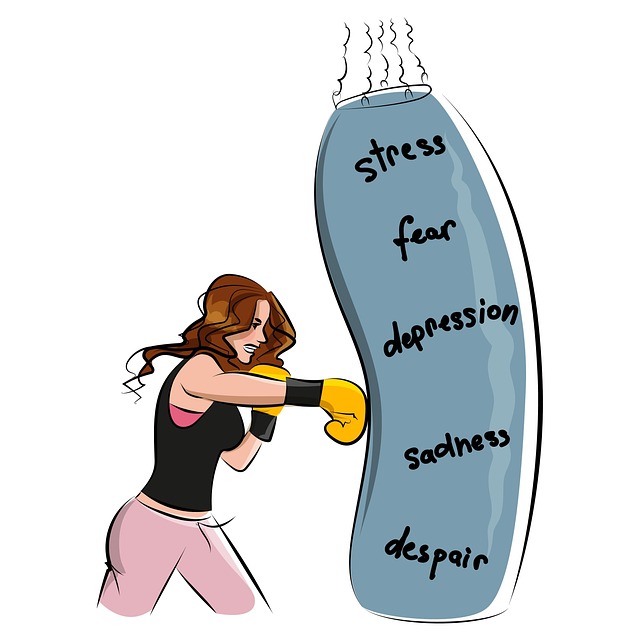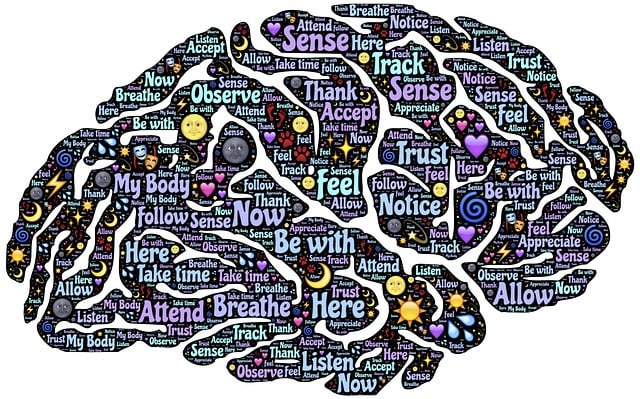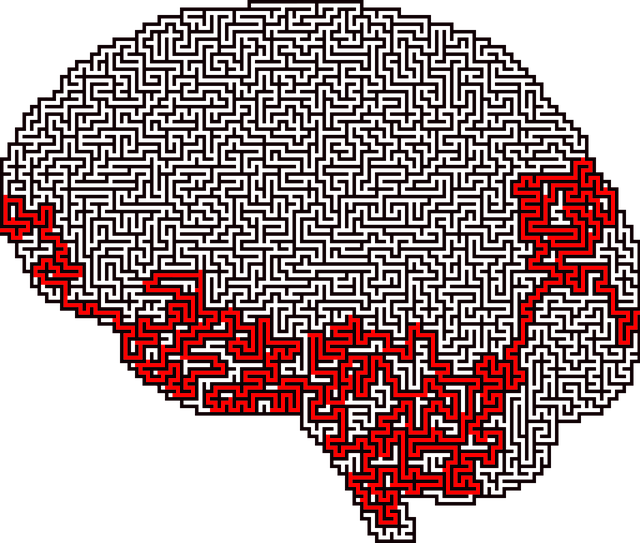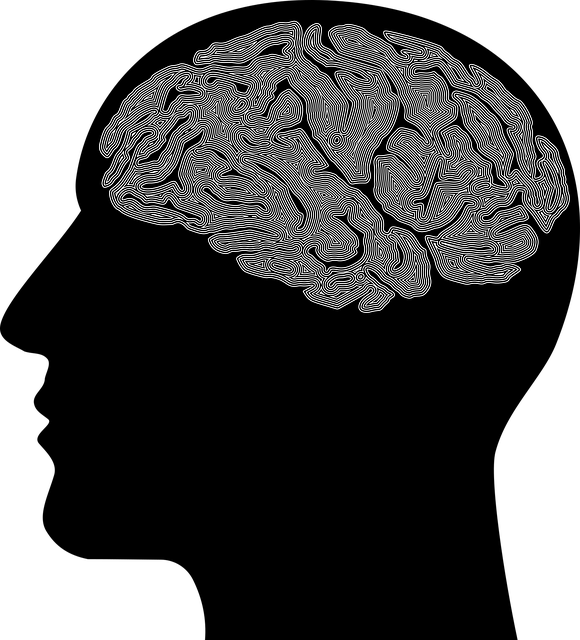Burnout among healthcare providers is a growing concern, impacting both personal well-being and patient care quality. Early recognition of signs like physical exhaustion, cynicism, and feelings of ineffectiveness is key to prevention. Causes are multifaceted, including high workload, long hours, emotional demands, and exposure to distressing situations. Northglenn Dissociative Disorder Therapy practices can combat burnout through supportive work environments, implementing policies for emotional support, mentorship, mental wellness coaching, relaxation spaces, mindfulness workshops, flexible work arrangements, and effective communication. Prioritizing self-care with mindfulness, exercise, and healthy eating habits, along with advocating for improved mental health policies, creates a resilient workplace culture. Continuous learning through coaching programs and community engagement boosts morale and patient care quality, particularly in managing complex cases like dissociative disorders. Effective communication channels reduce misunderstandings and foster unity, leading to higher job satisfaction and reduced burnout rates.
In the demanding landscape of healthcare, burnout among providers is a growing concern. This comprehensive guide explores effective strategies for prevention, tailored specifically for Northglenn Dissociative Disorder Therapy practices. We delve into recognizing signs and causes of burnout, creating supportive work environments, enhancing self-care, fostering professional development, and promoting team collaboration. By implementing these strategies, healthcare practices can build resilience, improve patient care, and cultivate a thriving therapeutic environment.
- Understanding Burnout: Recognizing the Signs and Causes in Healthcare Providers
- Creating a Supportive Work Environment: Strategies for Northglenn Dissociative Disorder Therapy Practices
- Enhancing Self-Care Practices: Prioritizing Mental and Physical Well-being
- Fostering Professional Development and Engagement: Keeping Practitioners Motivated
- Implementing Effective Communication and Team Collaboration: Building a Resilient Healthcare Team
Understanding Burnout: Recognizing the Signs and Causes in Healthcare Providers

Burnout among healthcare providers is a growing concern, impacting both individual well-being and patient care quality. Recognizing burnout early is crucial for effective prevention. Signs often include physical exhaustion, cynicism or detachment from work, and feelings of ineffectiveness or lack of accomplishment. These symptoms can lead to decreased productivity, increased absenteeism, and even negative impacts on patient outcomes.
The causes of burnout in healthcare providers are multifaceted. High workload, long working hours, emotional demands, and a constant exposure to distressing situations contribute significantly. Furthermore, factors like a lack of control over work environment, poor communication, and insufficient resources can exacerbate these issues. In the context of Northglenn dissociative disorder therapy and other mental health practices, understanding cultural sensitivity in healthcare is vital. Additionally, implementing stress management workshops and developing mental wellness coaching programs can empower healthcare providers to cope with these challenges effectively.
Creating a Supportive Work Environment: Strategies for Northglenn Dissociative Disorder Therapy Practices

Creating a supportive work environment is paramount for Northglenn Dissociative Disorder Therapy practices to prevent provider burnout. This involves implementing policies and practices that prioritize mental health, well-being, and work-life balance. Strategies can include regular staff meetings focused on emotional support, mentorship programs pairing experienced therapists with newcomers, and the development of Mental Wellness Coaching Programs. These initiatives foster open communication, encourage peer-to-peer learning, and promote healthy coping mechanisms within the team.
Furthermore, integrating Emotional Well-being Promotion Techniques into the therapy setting can significantly contribute to burnout prevention. This may involve scheduling dedicated relaxation spaces, offering mindfulness workshops, or implementing flexible work arrangements. By addressing mental health concerns proactively through a comprehensive Mental Health Policy Analysis and Advocacy approach, Northglenn Dissociative Disorder Therapy practices can cultivate a resilient and supportive workplace culture that benefits both providers and clients.
Enhancing Self-Care Practices: Prioritizing Mental and Physical Well-being

In the high-pressure world of healthcare, burnout is a very real concern for providers, who often put their patients’ needs before their own. Enhancing self-care practices is a vital strategy to combat this issue and ensure long-term resilience. Prioritizing mental and physical well-being should be at the forefront of every healthcare worker’s routine. This involves adopting mindfulness techniques to manage stress, engaging in regular exercise, and cultivating healthy eating habits – simple yet powerful tools that can significantly boost one’s ability to cope with work-related demands.
Northglenn dissociative disorder therapy, for instance, offers specialized support for mental health issues, which are not uncommon among healthcare providers. By embracing a holistic approach to self-care, including confidence-boosting techniques and the application of mind over matter principles, professionals can navigate their careers with greater resilience. Furthermore, advocating for improved mental health policies within healthcare institutions can create a supportive environment that encourages open dialogue and accessible resources, ultimately addressing systemic factors contributing to burnout.
Fostering Professional Development and Engagement: Keeping Practitioners Motivated

In the high-pressure environment of healthcare, fostering professional development and engagement is crucial to preventing burnout among practitioners. Providing opportunities for continuous learning and skill enhancement can significantly boost morale and motivation. Northglenn Dissociative Disorder Therapy centers, for instance, have recognized the importance of offering mental wellness coaching programs and hosting Mental Wellness Podcast Series Production as part of their support systems. These initiatives not only equip healthcare providers with advanced techniques in mood management but also foster a sense of community and purpose.
By encouraging professionals to participate in these activities, organizations can create an environment that values growth and engagement. The result is a more motivated workforce, leading to improved patient care. Moreover, such programs can help healthcare providers maintain their mental wellness, which is paramount for those dealing with complex cases, including dissociative disorders. This holistic approach ensures practitioners stay not just physically healthy but also emotionally balanced, thereby enhancing their overall effectiveness in the workplace.
Implementing Effective Communication and Team Collaboration: Building a Resilient Healthcare Team

In healthcare settings, effective communication and collaboration among team members are essential strategies to prevent burnout and foster a resilient work environment. Healthcare providers often face high-stress situations and complex patient cases, making it crucial for them to be able to rely on one another. Implementing open and transparent communication channels allows for the efficient exchange of information, reduces misunderstandings, and promotes a sense of unity among staff. Regular team meetings, where everyone has an opportunity to voice their concerns, share ideas, and collaborate on solutions, can significantly enhance moral and reduce burnout rates.
By fostering a culture of collaboration, healthcare organizations can create a supportive environment that encourages self-care routine development for better mental health. This includes promoting emotional well-being promotion techniques like conflict resolution skills training, which helps team members navigate challenging situations constructively. Such initiatives ensure that providers feel valued and supported, ultimately leading to higher job satisfaction and reduced dissociative disorder symptoms, as seen in cases of Northglenn dissociative disorder therapy.
Burnout among healthcare providers is a significant concern, but by implementing tailored strategies, practices like Northglenn Dissociative Disorder Therapy can foster resilience. From cultivating supportive work environments and enhancing self-care to encouraging professional development and effective communication, each approach plays a crucial role in preventing burnout. By prioritizing these strategies, healthcare organizations can build a more robust and motivated workforce, ultimately improving patient care and the overall well-being of practitioners.














